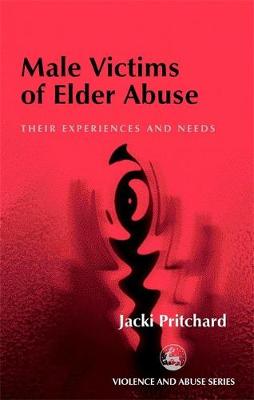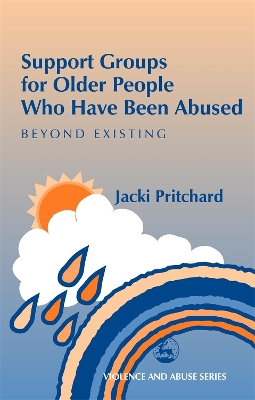Violence and Abuse
2 total works
- Social Work Education
'The purpose of this book is to give attention to the problems of elder men in abusive situations, so that those in helping capacities may better understand these men and the help that they need. The use of case illustrations is very effective in the discussion of reactions and responses to abuse. In some cases the, the negligence in follow through is noted for professionals working with the elderly persons. Importantly, too, the author describes her efforts in creating a milieu within focus groups for the men to articulate feelings about their experiences... Jacki Pritchard has written a book that can well be considered an important antecedent effort in identifying a problem that heretofore has not received needed attention... [An] informative and sensitively written book'
- Journal of Elder Abuse and Neglect
'This is a neat little book, and I recommend it... Jacki Pritchard is clearly an expert in the field. As a former social worker, she brings practicality and a common-sense approach to her research, which `rings true' to the jobbing clinician. Moreover, Ms Pritchard writes clearly and concisely, and her quantitative and qualitative research techniques pass muster.'
- International Journal of Geriatric Psychiatry
'This book is a useful addition to our knowledge of the subject, as it covers the abuse experienced by older men, a topic that until recently has received little attention... This is an important book for practitioners working in the field of elder abuse. Whilst the research is not representative, the rich descriptions of the respondents' experiences are full of information and emotion. The book is also useful as a first step from which other, in-depth studies can be undertaken into abuse as experienced by older men... Pritchard's style is conversational and accessible. Material is introduced in a friendly and informal way.'
- Ageing & Society
Older men may, like older women, be victims of abuse - yet there has been little in either research or service provision to reflect this. Drawing on in-depth interviews with twelve older men who have experienced abuse, Jacki Pritchard presents much-needed practical guidance for care professionals, managers and policy makers working with this group.
She describes the different kinds of abuse experienced by the men, which can include not only financial, physical, emotional and sexual abuse, but also physical and emotional neglect, and goes on to establish in detail the needs of older male victims of abuse and how they should be addressed. As well as having their emotional needs and their need for support over past abuse met, the men need a physical place of safety, medical care and the cultural awareness and continuous support of professional carers.
This book presents clear guidelines for both the initial assessment of need and for good practice in the long term. It will enable all those working with older people to understand better the phenomenon of the abuse of older men and to apply this understanding to effective service provision.
Violence and Abuse Series
'The book is well written and informative for anyone who might want to work with victims of abuse. The author provides clear guidelines about who can benefit from group work and how survivors can heal and work together.'
- Ageing Matters in Ireland
In this thought-provoking book, Jacki Pritchard shows how support groups for victims of elder abuse provide invaluable opportunities for the voices of older people to be heard. Following groups through a two-year period, she discusses how they were set up and the difficulties encountered and overcome. The inclusion of younger adults alongside older people in one of these groups demonstrates the success of these techniques across a broad age span and the relevance of these experiences to general group work theory. She presents qualitative material alongside guidance for how to undertake practical and therapeutic work with male and female survivors.
Presenting the implications of her findings regarding the interplay of child abuse, domestic violence and adult abuse, she highlights the need for professionals to recognise close links between the different types of abuse. Pointing to an important and new area of professional intervention in elder abuse, the author provides clear guidelines about who can benefit from group work and how survivors can heal and work together.

